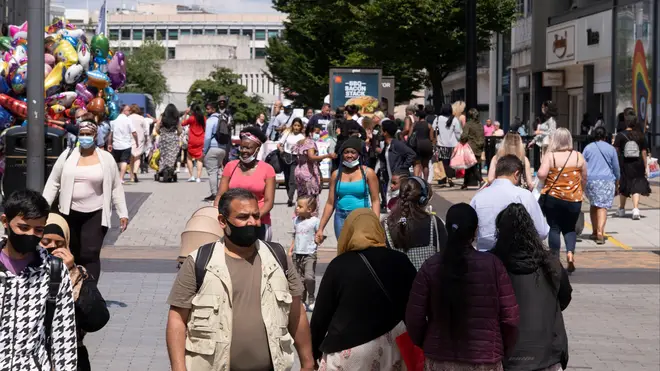
Tonight with Andrew Marr 6pm - 7pm
7 August 2021, 07:35 | Updated: 7 August 2021, 08:29

Further coronavirus lockdowns are unlikely to be needed and the UK will probably need to accept Covid is sticking around, an expert has said.
Professor Neil Ferguson, the immunologist from Imperial whose modelling about shutdowns was thought to be influential ahead of the March 2020 restrictions, believes cases are going to rise.
But heavy restrictions seen last year and the start of 2021 should not need to return, he predicted.
It is hoped the UK's vaccine programme has weakened the link between new cases and rising hospital cases and deaths.
Prof Ferguson, who sits on Government advisory committees, told the Times it is "unlikely we will need a new lockdown or even social distancing measures of the type we've had so far".
However, he warned that if coronavirus "changes substantially", that could change.
Read more: Covid case rates dropped at end of July after England's 'Freedom Day' reopening
Read more: Political pressure delayed UK's Covid-19 response, top scientist suggests
He believed the UK could "reach another point where we start seeing increasing case numbers again", though at least vaccines had "changed the relationship between cases and hospitalisation".

Professor Neil Ferguson hints at political influence behind lockdown
He added that the UK will probably need to accept Covid is a lingering, potentially lethal, threat and said: "I suspect for several years, we will see additional mortality.
"There's a risk in the winter coming of thousands to tens of thousands more deaths."
His comments come as the proportion of people who tested positive for Covid in the week to July 31 fell compared to the week prior.
The Office for National Statistics found about one in 75 people in private households tested positive, down from one in 65 in the week before despite the July 19 unlocking.
More than 46 million people have had their first dose in the UK, while 39 million have had their second jab.